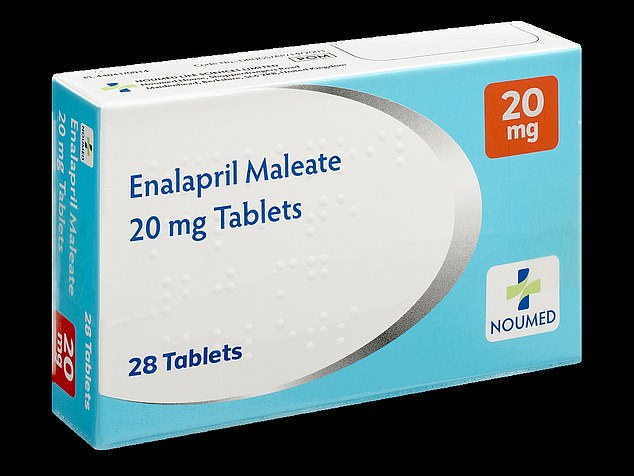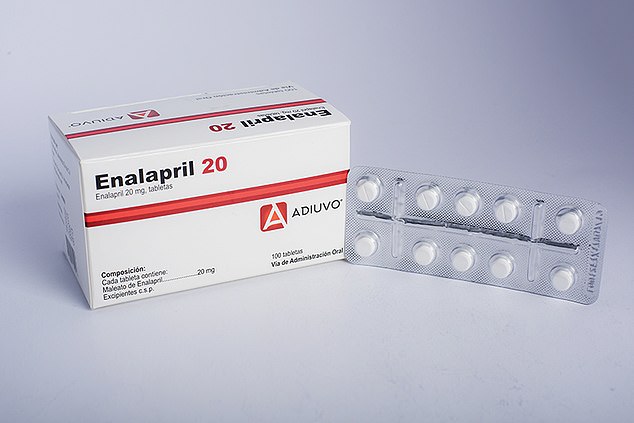The small tablet that baby heart patients can swallow – which disperses in saliva to lower blood pressure and promote blood flow
A mini-tablet that dissolves in the mouth within six seconds could dramatically improve the treatment of heart failure in babies and young children.
The tablet is only 2mm in size, barely as wide as a peppercorn, and contains the commonly used drug enalapril, which lowers blood pressure and improves blood flow to the heart.
It can be put in the mouth without the child noticing, for example while sleeping. It then spreads through the saliva before being swallowed.
Researchers hope the fast-dissolving tablet, called Aqumeldi, will improve medication adherence in younger children with heart failure who have difficulty swallowing pills, leading to fewer symptoms such as shortness of breath and slow growth.
In the UK, around 1,400 babies a year are diagnosed with heart failure, where the heart is too weak to pump blood around the body.
The tablet is just 2mm wide – barely the width of a peppercorn – and contains the commonly used drug enalapril (Stock image)

About 1,400 babies a year in the UK develop heart failure, where the heart becomes too weak to pump blood around the body (Stock photo)
This is almost always caused by congenital abnormalities, such as structural abnormalities of the heart that prevent it from pumping blood properly.
This means that vital organs, muscles and tissues no longer receive oxygen.
Medications commonly used to treat heart failure in adults include beta-blockers to slow the heart rate and prevent it from overheating; diuretics to drain excess fluid in the legs and feet that builds up with heart failure; and medications to widen blood vessels and lower blood pressure, thereby relieving strain on the heart.
But many of these tablets are large, difficult for children to swallow. In addition, they have been largely tested in adults, with few tests done in children (partly because the numbers affected are lower and because of the ethics of giving experimental drugs to babies).
One solution is to cut adult pills into pieces to provide smaller doses for young children. But this makes it difficult to get an accurate and safe dose, meaning the medication may not be effective or may cause side effects.
A child-friendly form of one of the main heart failure medicines, called Entresto, is available on the NHS in the form of granules that are sprinkled on to soft food (such as yoghurt) for children to eat. But this is still dependent on them eating their food to get the full dose.

Medicines commonly used to treat heart failure in adults include beta-blockers to slow the heart rate and prevent it from overheating, but this new tablet is called enalapril (file image)

But pharmaceutical companies hope the new mini-tablet could be a better alternative to enalapril (File image)
The new mini-tablet could be a better alternative. Proveca Pharma, the Manchester-based company behind it, says it uses nanotechnology to compress the required drug particles into a more compact formula.
Aqumeldi has been approved by the Medicines and Healthcare products Regulatory Agency. Several NHS trusts in Leicester were the first to prescribe it and others are expected to follow.
A recent study at Heinrich Heine University in Düsseldorf, Germany, in which 89 children with heart failure were given Aqumeldi, found that the drug consistently delivered an accurate prescribed dose and was easy to use.
Stephen Tomlin, director of the Children’s Medicines Centre at Great Ormond Street Hospital, said of the breakthrough: ‘Most new medicines are not tested in children and are not child-friendly. Using a dispersible mini-medicine like this is fantastic because it allows children to take an easy-to-use tablet without having to swallow it.’
